
Qatar"s trade platform enhances B2B marketplace opportunities. "
Qatar's sovereign wealth fund, the Qatar Investment Authority (QIA), is one of the largest and most influential sovereign wealth funds globally. It manages substantial financial assets and invests in various sectors worldwide, including finance, real estate, technology, infrastructure, and more. The QIA's investments contribute to Qatar's financial strength and global influence. Qatar has established itself as a regional financial hub with Doha, its capital, hosting the Qatar Financial Centre (QFC). The QFC provides a business-friendly environment, offering tax incentives and a regulatory framework that attracts international financial institutions, banks, and multinational corporations to set up operations in Qatar.
The growth rate of GDP in Qatar has been announced at about -2.60 percent and the growth rate of GDP more than 32.90% has been announced. Qatar in terms of gross fixed capital formation has been able to reach 78618.00 million Qatari Rials, which is a significant figure. According to the evidence, Qatar has reached $ 112531.50 per capita GDP per capita.
Qatar is a prominent player in the Islamic finance industry. It has a robust Islamic banking sector, offering Sharia-compliant financial products and services. Qatari banks contribute to the growth and development of Islamic finance globally, with their expertise and participation in international Islamic finance initiatives. Qatar's economy is heavily reliant on its hydrocarbon resources, particularly natural gas. As one of the world's largest producers and exporters of liquefied natural gas (LNG), Qatar holds a significant position in the global energy market. Its role as a major supplier of LNG contributes to global energy security and trade.
The situation of GDP agriculture in Qatar is about 312.00 million Rials in Qatar, which is a good figure considering the chaotic situation of agriculture in this country in recent years. The country has been able to declare the GDP of the country's gross domestic product of construction 22,456.00 million Rials. Qatar's GDP from construction is about 20,511.00 million Qatari Rials and the economic growth situation in this country is very ideal.
Gross domestic production from mines in Qatar is 96374.00 million Qatari Rials. This country has been able to perform excellently in the field of the mining economy. The GDP of the Qatari Public Affairs Office is 10920.00 million Rials. Fortunately, the management systems in this country have performed very well in recent years, and higher growth will be announced in the coming years. Qatar's gross domestic product is estimated at 5026.00 million Rials from public transport and 685.00 million Rials from welfare services.
Qatar has been actively pursuing economic diversification to reduce its dependence on hydrocarbons. The country has invested in sectors such as finance, real estate, tourism, transportation, and technology. Through initiatives like the Qatar National Vision 2030, Qatar aims to develop a diversified and sustainable economy, attracting global investments and fostering innovation. Qatar has made substantial investments in companies and projects worldwide. Through the QIA and other entities, Qatar has acquired stakes in numerous high-profile corporations, infrastructure projects, real estate properties, and financial institutions globally. These investments showcase Qatar's global commercial presence and influence.
Qatar is on the list of countries with the highest domestic demand for water, in general, the government has launched several projects to develop the state of the water network in the country since 2018. Most of Qatar's industrial activities are in the field of hydrocarbons so that the country's economy is based more on oil and gas-related industries. The currency of the country is Qatar Rials and is exchanged in a divided situation.
Qatar actively engages in international trade, both as an exporter of hydrocarbons and as an importer of goods and services. Its strategic location on the Persian Gulf facilitates trade flows, and Qatar has established strong trade relationships with countries across the globe. The country's commercial activities contribute to its global economic integration. Qatar has secured the hosting rights for major international events, including the 2022 FIFA World Cup. These events attract global attention, promote tourism, and stimulate commercial activities, further enhancing Qatar's global commercial position.
-

Qatar"s economy is significantly influenced by its sovereign wealth fund, the Qatar Investment Authority (QIA), which invests in diverse sectors globally. The country has established itself as a financial hub, particularly through the Qatar Financial Centre (QFC), attracting international businesses with favorable tax incentives. Despite a recent GDP growth rate of -2. 60%, Qatar"s per capita GDP stands at $112,531. 50, showcasing its economic strength. The nation is a leading player in the Islamic finance sector and heavily relies on its hydrocarbon resources, especially liquefied natural gas (LNG), contributing to global energy security. Economic diversification efforts are underway, focusing on finance, real estate, tourism, and technology to reduce dependence on hydrocarbons. Initiatives like Qatar National Vision 2030 aim to foster innovation and attract global investments.
Additionally, Qatar"s strategic location enhances its trade relationships worldwide, facilitating both exports and imports. The hosting of major international events like the 2022 FIFA World Cup further boosts tourism and commercial activities, solidifying Qatar"s position in the global market.
-
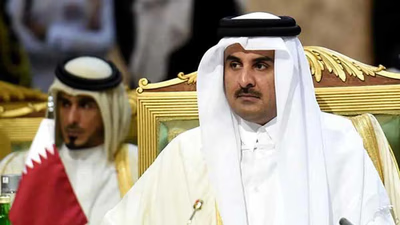
Qatar operates as an absolute monarchy, with power centralized in the Al Thani family. The Emir serves as the head of state and government, holding significant executive authority. The position is hereditary, ensuring continuity within the ruling family. The Advisory Council, or Shura Council, acts as a consultative body, providing recommendations to the Emir but lacking binding decision-making power. The Council of Ministers, also appointed by the Emir, manages daily government operations and policy implementation. Qatar"s political structure emphasizes the Emir"s legislative and executive powers, supported by these councils. The country maintains a legal framework based on Islamic law while allowing individual rights related to property and economic activities that align with public interest. Doha is the capital city and a hub for economic activity, particularly in oil and gas sectors.
Other cities like Al Rayyan and Al Khor contribute to Qatar"s diverse economy through their proximity to industrial areas and resources. Qatar"s governance includes various ministries overseeing essential sectors such as finance, foreign affairs, energy, education, and health. Municipal councils manage local governance issues across different municipalities, with members being both elected and appointed.
-
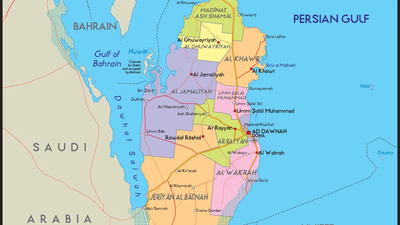
Qatar"s strategic location on the northeastern Arabian Peninsula significantly influences its economy and culture. The country, bordered by Saudi Arabia and the Persian Gulf, has a high-income economy primarily driven by its vast reserves of natural gas and oil. As one of the leading exporters of liquefied natural gas (LNG), Qatar"s oil and gas sector accounts for a substantial portion of government revenue, contributing to rapid economic growth estimated at 20%. The official language is Arabic, essential for business communication, while English is also widely spoken in educational and professional settings. Qatar"s climate is characterized as hot and dry desert, with optimal visiting times in April, May, and autumn. The discovery of oil in 1939 transformed Qatar into one of the richest countries globally, prompting diversification efforts that reduced dependence on oil revenues from 93% to 83%. Investments in energy infrastructure have further solidified its economic position. Additionally, Qatar"s sports infrastructure attracts international events, enhancing tourism and business networking opportunities.
Overall, Qatar"s unique geographical advantages combined with its rich natural resources create a dynamic trade environment. "
-
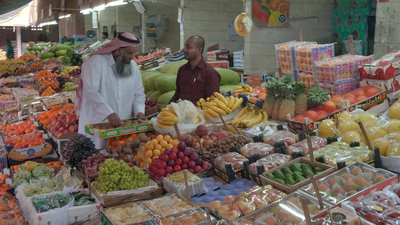
Qatar"s economy is thriving, primarily due to its abundant natural gas and oil reserves, leading to a high GDP per capita. The government is focused on diversifying the economy through the Qatar National Vision 2030, which opens avenues for exporters in finance, real estate, tourism, and technology. Strong trade relations and various bilateral agreements enhance market access for exporters. Qatar"s strategic location next to the Persian Gulf facilitates goods transit, while modern infrastructure supports trade activities. Despite political challenges with neighboring countries, Qatar maintains robust ties with Iran, which aids in import-export dynamics. The country heavily relies on imports for industrial goods due to a lack of local production capabilities. Key sectors for export opportunities include construction materials and services, especially with upcoming events like the FIFA World Cup 2022 driving demand. Free trade zones such as QFZA and QFC provide favorable conditions for businesses looking to enter the Qatari market.
-
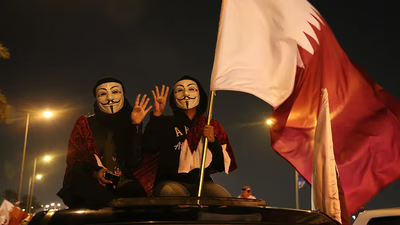
Qatar has made significant strides in various sectors, including legislation, crime reduction, and economic development. The country maintains a unique cultural blend due to its high immigration rate, with Islam playing a central role in societal norms. Dress codes are formal, especially in religious settings, and respect for local customs is paramount. The Qatari hijab has seen some relaxation over the years, yet traditional values remain strong. Education and transportation systems are advanced, contributing to the nation"s economic growth. Qatar"s government effectively manages inflation and food prices while ensuring high satisfaction among its citizens regarding welfare services. The hospitality of the Qatari people is notable, reflecting a calm society with strong emotional ties. As Qatar continues to develop its infrastructure and services, it remains essential for visitors to respect local customs and practices.
-
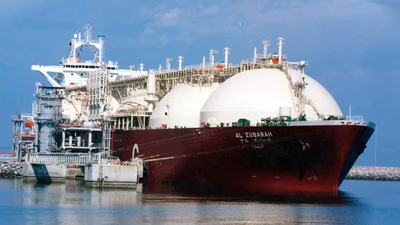
Qatar"s economy is one of the wealthiest globally, primarily due to its extensive natural gas reserves. The country is a leading producer and exporter of liquefied natural gas (LNG), which significantly contributes to its high GDP per capita and low unemployment rates. The oil and gas sector remains the backbone of Qatar"s economy, generating substantial government revenue. However, Qatar is actively pursuing economic diversification through initiatives like the Qatar National Vision 2030, aiming to reduce reliance on hydrocarbons by investing in finance, real estate, tourism, transportation, and technology. This diversification strategy has already shown positive results, with economic growth estimated at 20%. The upcoming 2022 World Cup is anticipated to further boost the economy. Despite challenges in agriculture due to saline soils and reliance on migrant labor for farming, sectors like fishing also contribute to the economy. Since discovering oil in 1939 and joining OPEC in 1961, Qatar has seen a significant increase in average income levels.
The government has established sovereign wealth funds like the Qatar Investment Authority (QIA) to manage surplus revenues from hydrocarbon sales effectively. These funds have made global investments across various sectors, supporting infrastructure development and social welfare programs.






